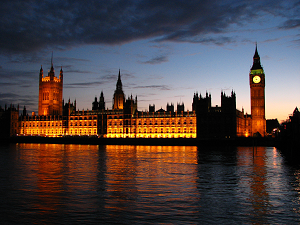
By Michael McHugh and Aoife Moore, Press Association
A ruling that Northern Ireland's strict abortion regime is incompatible with human rights law will be "clearly heard", the Government said.
A majority of Supreme Court judges expressed the clear opinion that the legislation is at odds with European law in cases of fatal foetal abnormality, rape and incest.
The 1967 Abortion Act does not extend to Northern Ireland and the procedure is only permitted if a woman's life is endangered or if there is a risk of serious damage to her mental or physical health.
Northern Ireland Secretary Karen Bradley told the House of Commons: "No formal declaration has been made by the court and the appeal has been dismissed.
"But the analysis and comments from the court on the issue of incompatibility will be clearly heard by this House and politicians in Northern Ireland."
Most of the seven-strong panel of justices in London ruled that the Northern Ireland Human Rights Commission had no legal standing to bring its challenge. The judges therefore did not make a formal declaration of incompatibility, which would usually produce change in the law.
Outside court Bernadette Smyth, director of Northern Ireland-based anti abortion campaign group Precious Life, said: "What happened here today was upholding democracy. This court made a ruling that this court has no right to make decisions for Northern Ireland.
"Regardless of their opinions, this is a law in Northern Ireland and that is where these decisions should be made."
Human Rights Commission chief commissioner Les Allamby said the law needed to change to stop women and girls from suffering further anxiety and suffering.
"In the absence of the Northern Ireland Executive and Assembly it falls to the UK Government to make this change and it must act without delay."
Richard Bentley, medical abortion provider Marie Stopes UK's managing director, said he was dismayed by the decision against the commission.
"We call on politicians in Belfast and Westminster to take decisive action now to ensure Northern Irish women are finally afforded the care and compassion they deserve."
Breedagh Hughes, Royal College of Midwives director for Northern Ireland, said she hoped the decision would lead to changes which improved care for women.
"This is a fundamental issue about the rights of women which are too often denied the world over."
Jim Allister, leader of the Traditional Unionist Voice party in Northern Ireland, said terminations were about killing.
"Before an abortion there is a living baby with a beating heart in the womb; abortion kills and removes that living creation.
"Thus, how anyone can think of such an act as a 'human right' is beyond me."
Dawn McAvoy, from Northern Ireland campaign group Both Lives Matter, said there was no legal requirement for a law change.
"The court did not find a human right to end a human life."
Grainne Teggart, Amnesty International Northern Ireland campaigner, said all eyes were on the UK Government.
"Theresa May can no longer sit back and do nothing whilst countless women continue to suffer on her watch.
"This must be the final nail in the coffin for Northern Ireland's abortion ban."


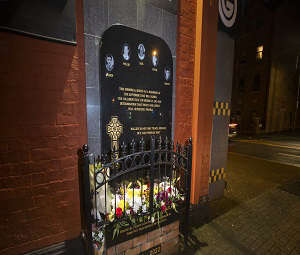 Officer to be prosecuted for offence linked to Troubles memorial during pandemic
Officer to be prosecuted for offence linked to Troubles memorial during pandemic
 Pair appear before court charged with nurse’s murder
Pair appear before court charged with nurse’s murder
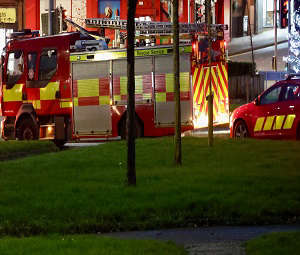 Woman dies in West Belfast house fire
Woman dies in West Belfast house fire
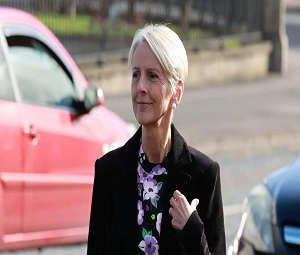 Eleanor Donaldson’s bid to have two charges withdrawn ‘should not delay trial’
Eleanor Donaldson’s bid to have two charges withdrawn ‘should not delay trial’
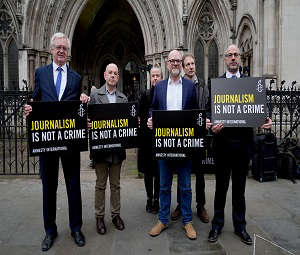 Police surveillance operation to unmask journalistic source ruled unlawful
Police surveillance operation to unmask journalistic source ruled unlawful